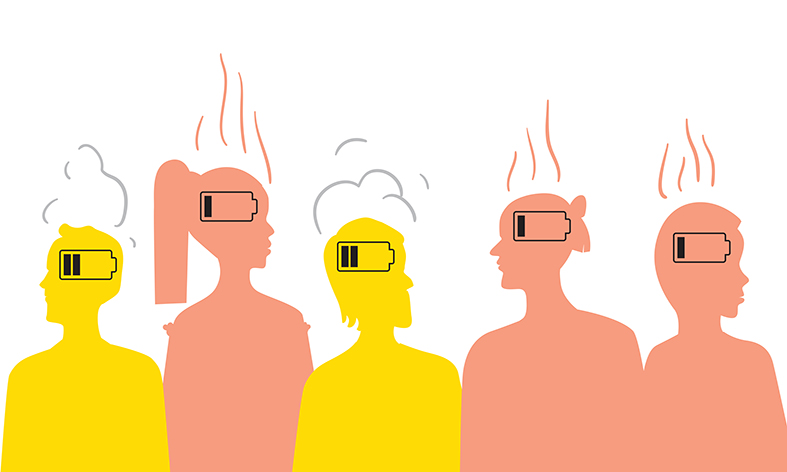
September 2025 | Occupational Diseases | Interview with WG Leaders

© Alona Horkova | iStock
Working Group Occupational Diseases
Interview with Anja Zyskacherix
About Anja
Can you briefly introduce yourself and your position?
My name is Anja Zyskacherix and I joined Suva in 2018 as an occupational physician. Since 2020, I’ve been head of the occupational medicine division. My role is to ensure that the operational activities of my almost 100 coworkers run smoothly, with the aim of preventing or detecting occupational diseases at an early stage.
Honestly, my job is very varied: it combines personnel management, project and strategy management, teaching and continuous improvement. Training, for example, is an important part of my responsibilities: Suva Occupational Medicine is accredited as a postgraduate training institute and trains future specialists in occupational medicine.
Could you describe your personal and professional aspirations for working in an organization dedicated to public health and safety?
For me, preventing illness is a noble mission in itself. What’s more, Suva has a legal mandate that enables it to take targeted, effective action for a broad population. I think it’s important to note that this organization is based on a unique model: it combines prevention, insurance and rehabilitation. And the fact that it is managed by the social partners allows for consensual and pragmatic solutions. I’m truly proud to contribute to such a meaningful endeavor.
About the ODWG
Can you tell me what the Working Group Occupational Diseases is about?
This group is currently made up of 11 members from social insurance schemes in various European countries, plus three members with an international profile. Our aim is to learn more and more about the recognition and management of occupational illnesses by social insurers, thanks in particular to the sharing of experience between members. In the spring of 2025, we ran a recruitment campaign, contacting all Forum members who were absent from our Working Group. This initiative has met with limited success, so far we have recruited two new members.
What topics have you already had the opportunity to discuss with your European counterparts in recent years?
Few years ago, we developed and published a position paper on work-related mental health disorders. Recently, we renewed a survey, originally carried out in 2015, to compare the evolution of practices in the recognition of work-related skin cancer due to natural UV (sun).
At present, the group is working on another comparative analysis on the subject of occupational disease reporting and coverage systems: we start from the hypothesis that occupational disease statistics are influenced by the mechanisms for reporting and funding the coverage of these diseases. The aim of this work is to show the influence of recording-systems on the statistics of occupational diseases within European countries and to help with the comparison or to show the limits.
Why did you want to be part of this Working Group?
Quite simply, it’s a great opportunity to learn from and exchange with professionals who devote their careers to concerns similar to mine, each in a slightly different context. In June 2023 in Berlin, I helped co-organize the holding of the WG. A few months later, in October, I had the opportunity to lead the online session, and since then I’ve been trying to organize two online sessions during the year to complement the face-to-face meeting at the annual Forum.
What does this leadership role bring you?
I am driven by prevention of occupational diseases. Exchanging experiences and striving to develop a common understanding of the topics discussed offers immense learning potential to be exploited, and added value for each member. As leader of the group, I have the opportunity to actively bring the major issues around occupational diseases to the fore, which, of course, are topics that also concern me beyond the scope of the Working Group.
About the ODWG’s work in 2025
What are the main topics to be addressed by the WG in 2025 in Luxembourg?
We drew conclusions from the latest survey on UV-induced skin cancer, and agreed to put this topic back on the agenda in a few years’ time. We also reviewed the draft Questionnaire on National Reporting and Recording Systems for Occupational Diseases.
What issues are particularly close to your heart that you’d like to address in future editions?
We have various ideas for future themes, including, for example, the occurrence of an occupational disease following an exposure accident. The format of our exchanges offers everyone the opportunity to propose topics, and, as long as they meet the general interest of the group, I gladly include them on the agenda.
What results do you expect from this international collaboration?
My aim is for this international collaboration to encourage the sharing of experience and best practice, while enabling us to identify common approaches to the major issues linked to occupational diseases. From a prevention point of view, we’re also looking to anticipate future challenges. ●
